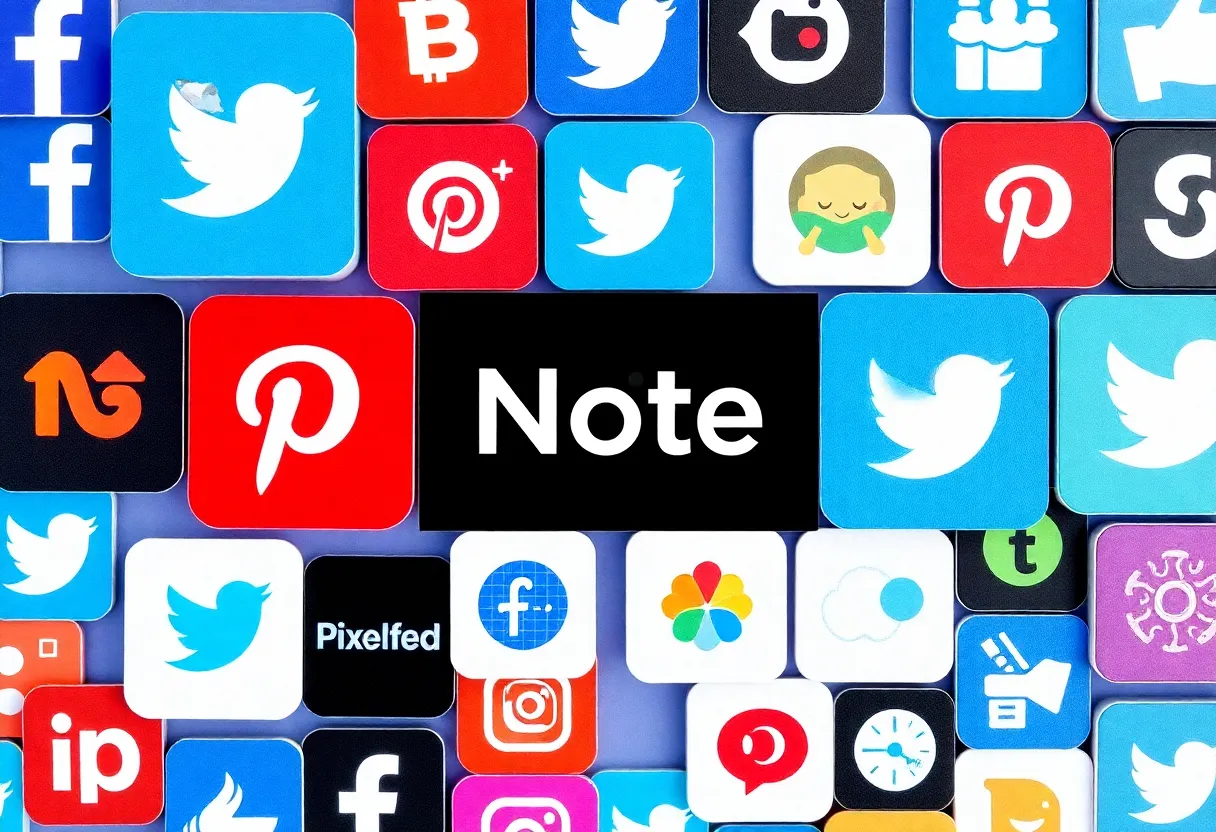News Summary
As TikTok grappled with uncertainty following a Supreme Court ruling, many users turned to alternative platforms like RedNote, Bluesky, and Pixelfed. The sudden halt and subsequent revival of TikTok raised significant concerns about privacy, content censorship, and the economic implications for creators. Users are increasingly looking for safer spaces that prioritize their needs and artistic freedoms.
TikTok Users Flee to Alternative Platforms Amid Uncertainty Surrounding App’s Future
Things got a bit rocky for TikTok users in the U.S. just recently! On January 18, 2025, many users were left in limbo when the popular app suddenly stopped working. This unexpected halt came right on the heels of a Supreme Court decision that upheld a ban on the platform unless its parent company, ByteDance, decided to sell it. It’s safe to say that this news hit like a ton of bricks for countless TikTok fans.
Just a mere 12 hours after the shutdown, TikTok was back in business, claiming the swift revival was largely a result of efforts by former President Donald Trump. However, the whole fiasco had many users scratching their heads and considering their next move. It was almost as if some users decided to become “TikTok refugees,” and they quickly sought out new havens for their short-form content fix!
RedNote: A Familiar Yet New Face
In the lead-up to the TikTok drama, over 700,000 users signed up for RedNote, a platform that many might not know about yet. Initially launched in 2013, RedNote, also known as Xiaohongshu, started as an e-commerce and product review site. Since then, it has morphed into a mix between Pinterest and TikTok. The app has a “For You” page that curates content based on individual interests. But here’s the catch – the platform hasn’t yet fully translated its terms of service into English, which has left some users hesitant.
What’s more, Google translations of RedNote’s policies revealed some concerning details. For instance, the service could use personal images, names, and other marketing info without offering any form of payment or compensation to users. Add this to reports about RedNote’s tight censorship rules, which ban discussions on topics like politics, drugs, and LGBTQ+ issues, and it’s no wonder some are proceeding with caution.
Bluesky and Other Incoming Contenders
Shifting gears, let’s talk about Bluesky, a decentralized social media platform that’s been all the buzz lately. With over 30 million users and a strong upward trend, it’s clear folks are eager for a new social space to call home. Meanwhile, Pixelfed, an open-source image-sharing platform, is also riding the wave of popularity. Users are flocking to Pixelfed for its no-ads policy and strong stance on privacy.
What’s particularly appealing about Pixelfed is that it allows users to join its largest operating server or create their own. This caters to the burgeoning demand for decentralized social networking. Then there’s Cara, which emerged in 2022 and is gaining traction due to its unique features. It recently attracted over 600,000 users who are protesting against AI content training issues. The platform even has a feature called “Glaze,” which protects artists’ work from being mimicked by generative AI – a pretty innovative approach!
Small Businesses and Creators at Risk
As the tide of users shifts toward these new platforms, one can’t help but think about the economic implications of a potential TikTok ban. Many small businesses in the U.S. heavily rely on TikTok for visibility and engagement, with the platform reportedly generating around $15 billion in revenue. A ban could seriously jeopardize income for approximately 2 million content creators across the country. These creators have built their livelihoods and brands on TikTok, and losing that platform might not only disrupt their income but their careers as well.
A Call for Privacy and Community Control
This exodus isn’t just about finding a new platform but is also fueled by rising concerns regarding privacy and data collection practices. Many users are increasingly looking for alternatives that emphasize privacy and community governance. Platforms like Pinksky and Flashes (a photo-sharing app by Bluesky) are part of a new wave of applications geared toward prioritizing ethical considerations in the social media landscape.
As this rapidly changing environment unfolds, it’s clear that users are eager for platforms that offer more than just entertainment. They want a safe space where they can express themselves freely. The uncertainty looming over TikTok has indeed opened the door for these emerging platforms, highlighting a greater desire for control and privacy in the digital realm. It’s a fascinating transition to witness as people navigate a new chapter in social media!
Deeper Dive: News & Info About This Topic
HERE Resources
Understanding the Disconnect Between CMOs and CEOs
Launch Your Affiliate Marketing Business for Free: A Step-by-Step Guide for Beginners
Exciting Changes at Deviate Digital as the Agency Gears Up for 2025!
Unilever Embraces AI and Digital Innovation for Smarter Marketing
Generative AI in Marketing: Embracing the Future
Exciting News: SEOST Digital Marketing Conference Coming to Chandler, Arizona!
Community Infrastructure Transformation Through Food Donation
FCC Investigates Disney’s Diversity Practices
Elon Musk’s xAI Acquires X for $33 Billion in All-Stock Deal
New Coordinator Tackles Homelessness Challenges
Additional Resources
- Hyperallergic: Social Media Alternatives
- Wikipedia: Social Media
- Forbes: Open Source and Ethical Alternatives
- Google Search: TikTok alternatives
- Business.com: TikTok Alternatives
- Encyclopedia Britannica: TikTok
- Clearance Jobs: Alternative Social Media Platforms
- Google News: Alternative Social Media Platforms
- New York Times: Decentralized Internet
- Google Scholar: Decentralized Social Media








